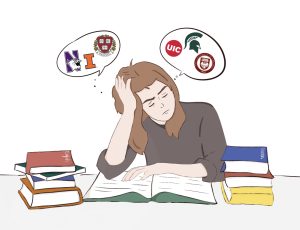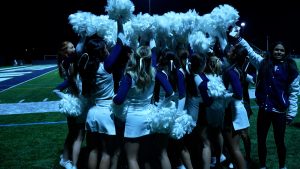High hopes for new civics requirement
Freshman will be first to fulfill mandatory course
October 8, 2016
The class of 2020 is the first to be subject to bill HB4025. In plainer words, the first class required to take a course in Civics.
The Illinois General Assembly Public Act 099-0434 claims the goal of the course is to “help young people acquire and learn to use the skills, knowledge, and attitudes that will prepare them to be competent and responsible citizens throughout their lives.”
The act requires that every student, prior to graduation, take part in at least a semester of the course.
Social Studies Department Chair Michael Christensen believes that though the mandate will require an adjustment period, it shouldn’t entirely disrupt students’ schedules.
Specific course titles are to be released in the 2017-2018 Program of Studies, but the department is primarily looking to implement the change within pre-existing courses of a stand-alone Civics program.
In fact, Christensen estimated that nearly 30% of students could already meet the requirement by their enrollment in pre-existing classes.
Christensen said that an average day in a Civics class would include learning about government institutions, simulations of how bills become laws, and debates about hot-button topics (such as gun control or voting laws).
Christensen also said the class would mainly be discussion-based, “in preparation for those sorts of conversations that they will be having when they leave this place and go into the broader world.”
Although sophomore Colleen Butler felt that a course that focused on current events might be more relevant than a conventional history class, she also said that a government-based class would prove to be immaterial to many students.
“There are some jobs where you really need to know about the government, but not everyone needs to know the specifics,” said Butler.
Conversely, senior Alec Lestrud said that a specialized education in Civics is necessary. “It’s important for students to know how their government works, how they can contribute to it and how it can benefit them in the long-run,” said Lestrud.
Christensen echoed this sentiment, saying she “would hope that a student could walk out of the course feeling excited about the process of being involved, and understanding issues enough to be interested in affecting change.”
A lesson in democracy may prove to be especially pressing in the face of this November’s presidential election, and in light of the increasing polarization of American politics.











































